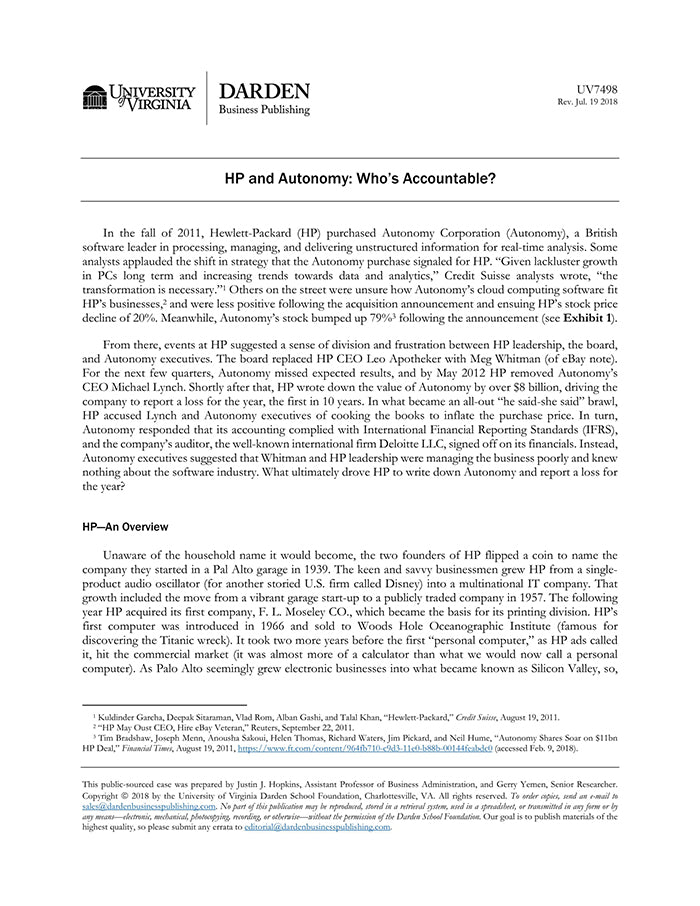HP and Autonomy: Who's Accountable?
受取状況を読み込めませんでした
Written using public sources, this case uses Hewlett-Packard's (HP) purchase of Autonomy Corporation (Autonomy) to analyze the accounting treatment for the acquisition and subsequent goodwill impairment. While the case focuses on the accounting for mergers and acquisitions, it also provides for a variety of other discussion topics such as the effect of managerial incentives and CEO succession on accounting outcomes, managerial "spin" on disclosure of bad news, strategy in changing institutional environments, and financial reporting limitations of new economy firms with heavy investments in intangible assets. The case opens during the fall of 2011 (when HP purchased Autonomy). Some analysts applauded the shift in strategy that the Autonomy purchase signaled for HP. Others were unsure how Autonomy's cloud computing software fit HP's businesses. From there, events at HP suggested a sense of division and frustration between HP leadership, the board, and Autonomy executives. The board replaced HP CEO Leo Apotheker with Meg Whitman. For the next few quarters, Autonomy missed expected results, and by May 2012, HP removed Autonomy's CEO Michael Lynch. Shortly after, HP announced an impairment charge of $8.8 billion related to the Autonomy acquisition, driving the company to report a loss for the year, the first in 10 years. The HP disclosure emphasized the Autonomy acquisition (which occurred prior to Whitman's tenure as CEO) and accused Lynch and Autonomy executives of cooking the books to inflate the purchase price. However, analysis of the financial statements and related footnote disclosures reveal that this $8.8 billion was less than half the $18 billion total impairment that HP recorded in 2012.
【書誌情報】
ページ数:16ページ
サイズ:A4
商品番号:HBSP-UV7498
発行日:2018/2/27
登録日:2018/9/13


